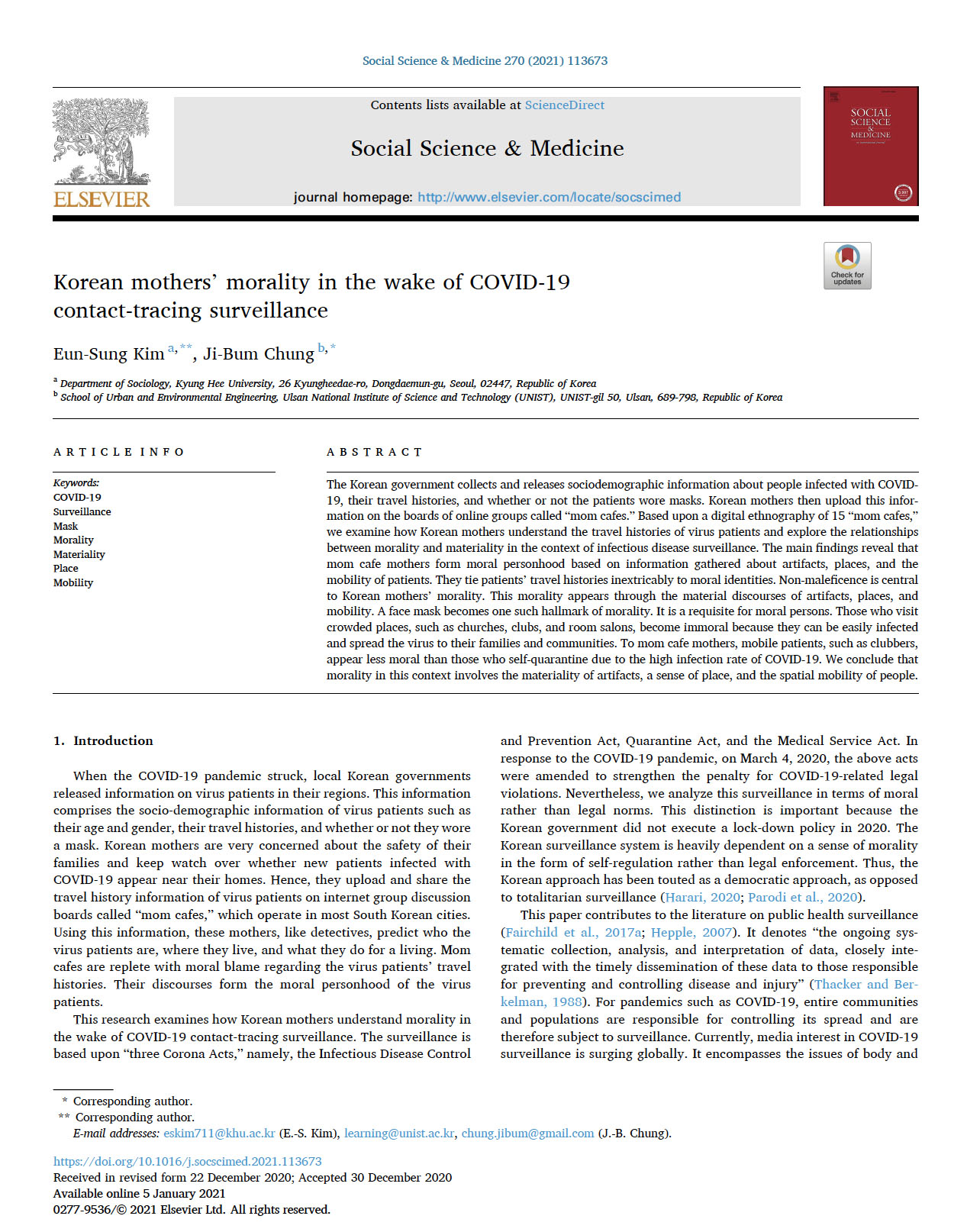
| Title |
: Korean mothers’ morality in the wake of COVID-19 contact-tracing surveillance |
| Date |
: February, 2021 |
| Journal title |
: Social Science & Medicine |
| Author |
: Kim, Eun-sung & Ji-Bum Chung |
| Contact us |
: csts@khu.ac.kr |
| Abstract |
: The Korean government collects and releases sociodemographic information about people infected with COVID-19, their travel histories, and whether or not the patients wore masks. Korean mothers then upload this information on the boards of online groups called “mom cafes.” Based upon a digital ethnography of 15 “mom cafes,” we examine how Korean mothers understand the travel histories of virus patients and explore the relationships between morality and materiality in the context of infectious disease surveillance. The main findings reveal that mom cafe mothers form moral personhood based on information gathered about artifacts, places, and the mobility of patients. They tie patients' travel histories inextricably to moral identities. Non-maleficence is central to Korean mothers’ morality. This morality appears through the material discourses of artifacts, places, and mobility. A face mask becomes one such hallmark of morality. It is a requisite for moral persons. Those who visit crowded places, such as churches, clubs, and room salons, become immoral because they can be easily infected and spread the virus to their families and communities. To mom cafe mothers, mobile patients, such as clubbers, appear less moral than those who self-quarantine due to the high infection rate of COVID-19. We conclude that morality in this context involves the materiality of artifacts, a sense of place, and the spatial mobility of people. |
|

